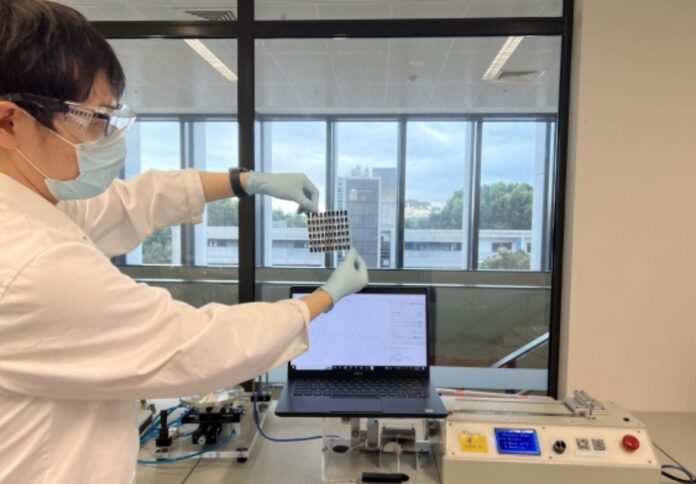
UNSW Sydney researchers have secured $3.7 million from the Australian Research Council’s (ARC) new Mid-Career Industry Fellowships program, augmented by a further $1.8 million from participating industry partners, enabling the manufacturing of scalable quantum processors as one of its objectives.
The university revealed the ARC’s Mid-Career Industry Fellowships scheme will use the expertise and talents of researchers from both universities and industry to solve industry-defined challenges.
Dr Kok Chan from UNSW Engineering will receive $764,472 for a “Scalable semiconductor quantum processor with flip-chip bonding technology.”
This project will lead the nation’s semiconductor quantum processors and intends to make it possible to manufacture such scalable quantum processors.
The ARC has awarded $1,053,296 to Dr Patrick Burr of UNSW Engineering for his work on “Life prediction and optimization of advanced first-wall fusion materials.”
In cooperation with HB11 and Tokamak Energy, the initiative aims to hasten the development of radiation-tolerant materials for fusion energy.
Additionally, the fellowship will raise Australia’s profile on the global fusion energy stage.
Professor Dewei Chu of UNSW Science will get $1,019,275 from the ARC for his project titled, “Bio-inspired Sustainable Materials for Self-powered Environmental Sensing.”
The objective of this project is to meet the market demand for self-powered, portable, and robust Internet of Things (IoT) devices for environmental sensing applications.
The primary outcome will be the development of a new class of Internet of Things (IoT) devices with high power density, sustainable output, and real-time environmental monitoring capabilities.
The university said these devices will directly help Australian businesses by offering affordable and effective ways to support safe working environments.
Lastly, Dr Bojan Tamburic from UNSW Engineering will receive $865,628 from the ARC research, “Large scale urban stormwater reuse: safe, clean and odourless water supply.”
By strengthening urban stormwater reuse capabilities and addressing an industry-identified need to assess the appropriateness of urban lakes and wetlands for stormwater collecting, this project seeks to increase the resilience of Australian water resources.
This will also guide Australian policy on stormwater reuse and provide information for adaptive planning and infrastructure preparation at water utilities.
The remarkable performance of UNSW in this first wave of funding initiative, according to Professor Nicholas Fisk, deputy vice chancellor for research and enterprise, and reinforces the university’s emphasis on collaborating with industry to transform research into practical outputs that benefit Australian society.
“We’re very proud of these UNSW researchers, who have done exceptionally well with a 26.7 per cent success rate compared with a national rate of only eight per cent. This reflects their exceptional dedication and track record in translating cutting-edge research into real-world applications,” Fisk noted.
The professor added, “Their research ranges from quantum computing and urban stormwater reuse to environmental sensing and materials for fusion energy.”
UNSW secured four of the seven Fellowships in NSW and placed second nationally with 16 per cent of the 25 awarded overall.




















